Plants
-
 Plants
Plants‘Lab Girl’ invites readers into hidden world of plants
In Lab Girl, geobiologist Hope Jahren reveals secret lives of plants — and scientists.
By Meghan Rosen -
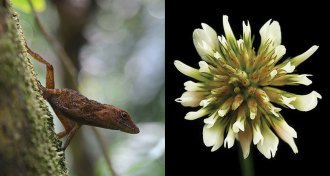 Life
LifeCities create accidental experiments in plant, animal evolution
To look for evolution in human-scale time, pick a city and watch a lizard. Or some clover.
By Susan Milius -
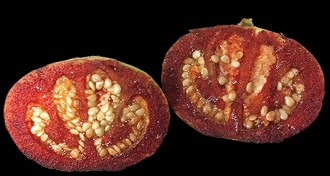 Plants
PlantsScary tomato appears to bleed
A new species of Australian bush tomato bleeds when injured and turns bony in old age.
-
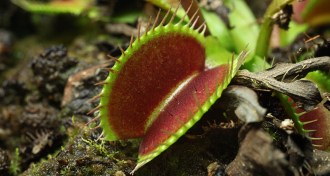 Plants
PlantsVenus flytraps use defensive genes for predation
Genetic analysis suggests that Venus flytraps repurposed plant defenses against herbivores to live the carnivore life.
-
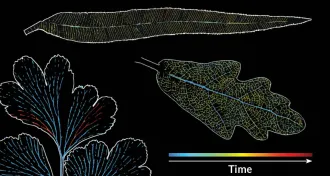 Plants
PlantsHere’s what a leaf looks like during a fatal attack of bubbles
Office equipment beats synchrotrons in showing how drought lets air bubbles kill the water-carrier network of veins in plant leaves.
By Susan Milius -
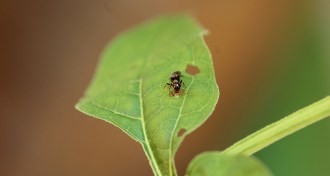 Plants
PlantsNightshade plants bleed sugar as a call to ants for backup
Bittersweet nightshade produces sugary wound goo to lure in ant protectors that eat herbivores, researchers have found.
-
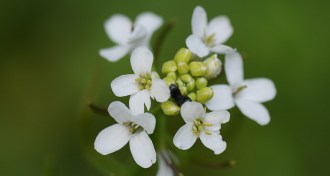 Plants
PlantsPrions may help plants remember
A plant protein has passed lab tests for prionlike powers as molecular memory.
By Susan Milius -
 Plants
PlantsPlants might remember with prions
A plant protein has passed lab tests for prionlike powers as molecular memory.
By Susan Milius -
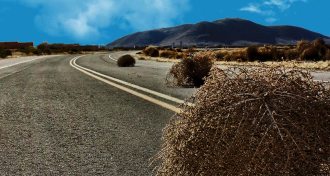 Plants
PlantsNew species of tumbleweed is just as bad as its parents
Two species of invasive tumbleweeds hybridized into a third. A new study finds it probably will be invasive, too.
-
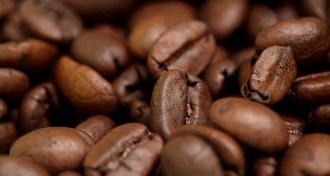 Microbes
MicrobesDiverse yeasts make their home on coffee and cacao beans
Yeasts in coffee and cacao are shaped by geography and human migration, genetic analysis finds.
-
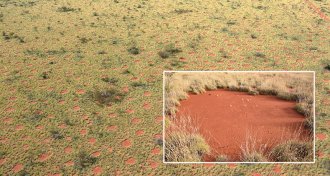 Ecosystems
EcosystemsAustralian fairy circles first to be found outside Africa
Strange patterns of grassland bald spots called fairy circles show up in Western Australia.
By Susan Milius -
 Plants
PlantsHow to keep seagrasses as happy as a clam
Drought can do more damage to seagrass meadows if their partnership with clams break down.
By Susan Milius